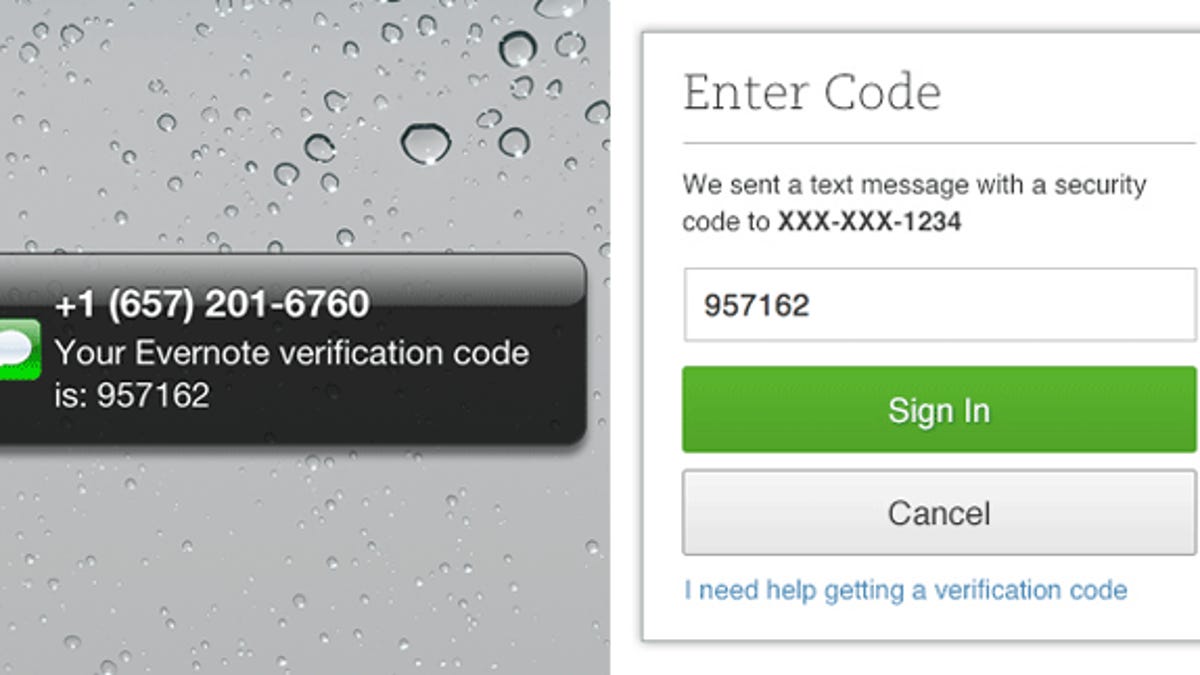Evernote locks down three new security features
The company's service now includes two-step verification, access history, and authorized application support.

Evernote, the popular note-taking app available on the Web and on mobile devices, has some new security features.
The company announced the new features on its blog on Thursday, saying that it's now offering three security tools that it didn't before. First up is two-step verification, which requires that users input both a password and a security code that can be sent to their mobile device. The company says that the two-step verification will only happen when users install Evernote on a device or access the service from the Web. It's also optional, so it can be turned off by those who don't want to deal with it.
See also: Two-factor authentication: What you need to know (FAQ)
In addition, Evernote now enables users to see the history of when their accounts were accessed. That information also includes a general location and an IP address to ensure someone wasn't snooping around in notes when they shouldn't have been.
Finally, Evernote now allows its users to revoke access to certain versions of its software. When users do so, they'll be required to input a password into the respective version -- say, the version they have installed on their iPhone -- to get back into the service. After inputting a password the first time, Evernote rarely requires the user to sign in again.
According to Evernote, its app authorization and access history features are available to all users. The two-step verification, however, is only going to be rolled out to the service's premium and business users. It expects to make it available to all of its users when it feels "comfortable with our ability to support a wide audience."

